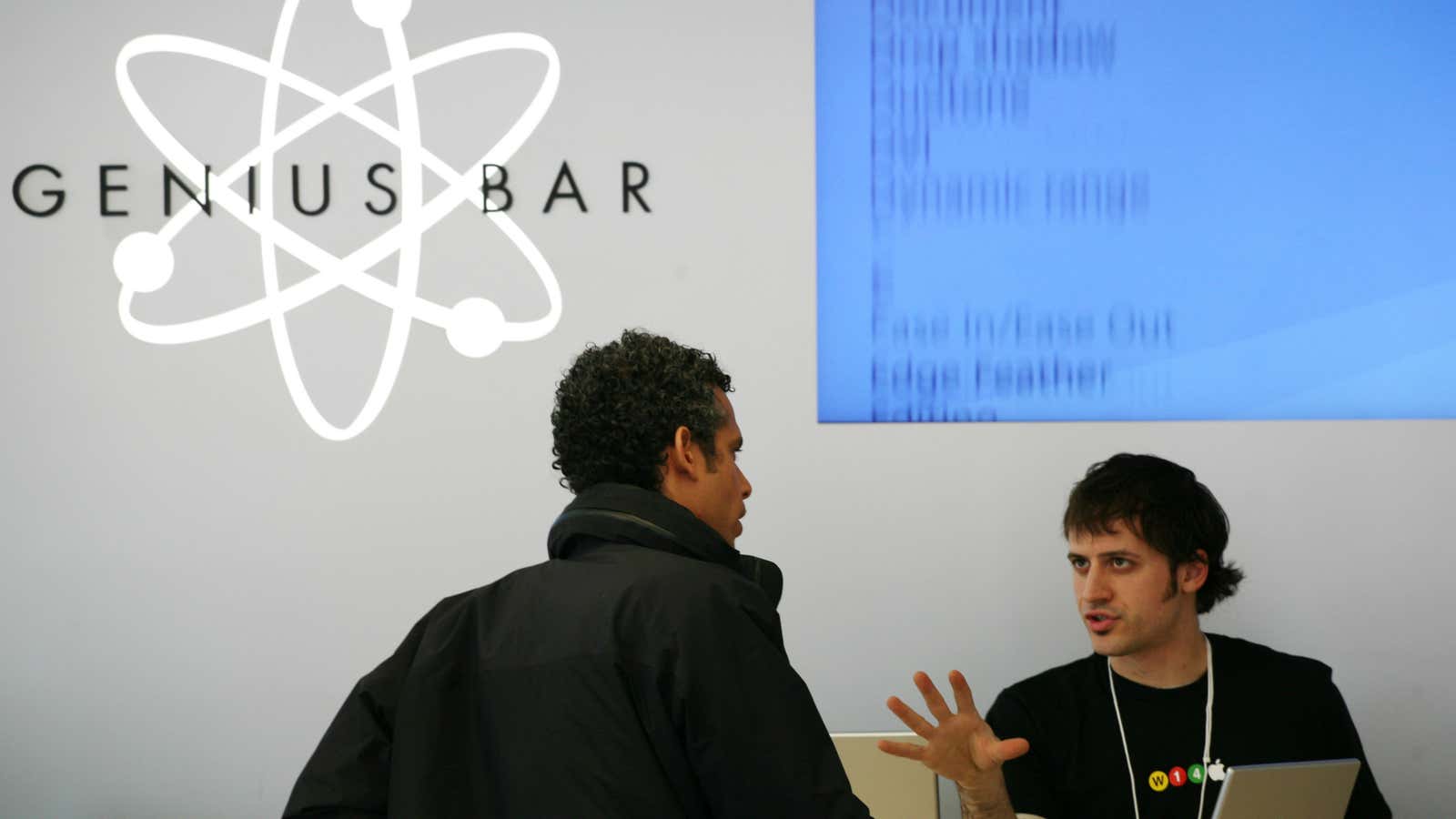Tesla owners adore their electric cars, perhaps even more than investors and journalists these days.
A poll by Bernstein Research, earlier reported by CNET, found that of 286 Tesla owners surveyed, 85% said they “loved” their cars. They “are fanatical about their cars, regardless of region, model, or year purchased,” the polling firm wrote in a note published Aug. 1, “underscoring our conviction that Tesla’s brand and cult-like consumer following is one of its greatest assets…We see this fanfare as reminiscent of Apple when it launched the iPhone.”
The comparison to Apple is apt, and there are lessons for Tesla in how the iPhone maker aggressively approached customer service as it grew so phenomenally.
Customers may love their Teslas—but servicing them is a cumbersome chore. Almost 30% of those polled said they could not get a service appointment within 10 days, and 22% said their problem wasn’t resolved on their first visit. Seventeen percent said they had to go back three times or more to resolve their issues.
It’s something Tesla will need to address as it ramps up production of its Model 3, its first mass-market car, to the delight of investors and journalists alike after the new car was delivered to its first owners in a splashy ceremony last week.
A feature of the first Apple retail stores, opened in 2001, was the Genius Bar. Now a common sight for Apple-product owners who seek the counsel of the specialists in blue T-shirts, they were an underutilized asset back then. At first, Ron Johnson—who created and opened the first Apple stores—wrote in the Harvard Business Review in 2011, no one would even go to these customer service desks at first:
We even had Evian water in refrigerators for customers to try to get them to sit down and spend time at the bar. But we stuck with it because we knew that face-to-face support was the very best way to help customers. Three years after the Genius Bar launched, it was so popular we had to set up a reservation system.
Owners of electric and self-driving cars, unfamiliar with features or products, might need the extra help of a robust support network. Bernstein’s survey found that 79% of autopilot users said they were confident in the feature on the highway, but only 22% had the same confidence level of the feature off the highway.
Tesla will need such a Genius Bar equivalent if sales projections prove accurate. While electric cars are still a small sliver of the US car market, they’re growing. Tesla reportedly has a backlog of reservations for the Model 3 that is near 500,000. The company will have to ramp up production at a breakneck pace, ensure that it has enough routine customer support, and hold the hands of tens of thousands of newbies.
It’s imperative because unlike an MP3 player, a working car, for most drivers, is a daily necessity.
Tesla says it has the infrastructure to service the Model 3s. Of course Tesla’s support network may not look like a Genius Bar at all, and that may work to the owners’ benefit. (Anyone who’s been to a hectic Apple store knows that they can resemble airports before a national holiday.) The company sees that as an advantage.
“We’re deploying a mobile service strategy to take 80% of the cars and fix them where it’s convenient to the customer,” JB Straubel, Tesla’s chief technology officer told investors on Aug. 2. “Not at our location, at their location. Make it invisible to them.”
Whatever setup Tesla chooses, timeliness should be addressed. Tesla fans are used to waiting, but they may grow more impatient in the future.
